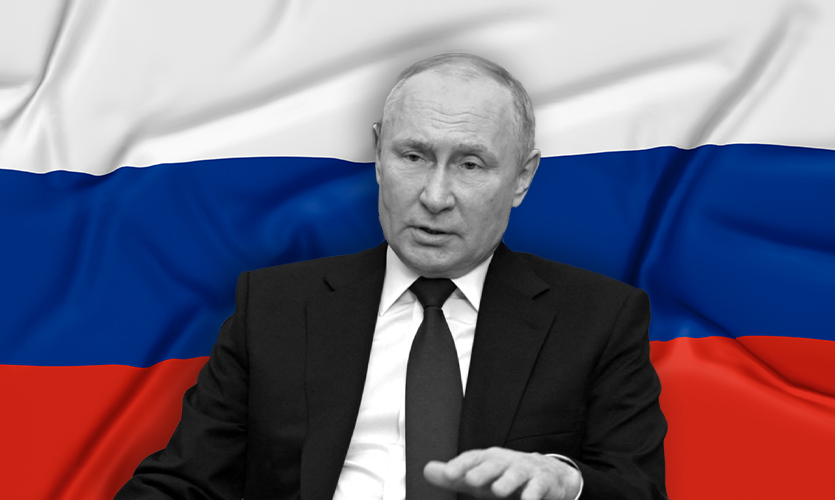As the crisis in Ukraine inches closer to entering its seventh month, Russian President Vladimir Putin has declared a partial military mobilisation in his country. Putin’s speech came a day after the Russian-controlled regions of eastern and southern Ukraine announced plans for a referendum on Russia’s membership.
On Wednesday, Putin stated that he has signed an order authorising the mobilisation, set to begin later the same day.
“We are talking about partial mobilisation, that is, only citizens who are currently in the reserve will be subject to conscription, and above all, those who served in the armed forces have a certain military speciality and relevant experience,” he said.
Putin’s speech came a day after the Russian-controlled regions of eastern and southern Ukraine announced plans for a referendum on Russia’s membership. His Kremlin-backed plan to encircle four regions could pave the way for Russia to escalate the conflict, following Ukraine’s war interests. A referendum, which has been planned since the conflict began, will begin on Friday in parts of Russia-controlled Luhansk, Kherson, Zaporizhia and Donetsk.
US Seeks Indian Intervention
The White House urged Prime Minister Narendra Modi to follow up on his counsel to Putin, regarding ceasing the conflict in Ukraine, stressing that now is not the time for war. Since the Russian invasion began in February, Modi has met and spoken with Putin on a regular basis, asking for diplomacy and peace negotiations, but has never openly criticised the conflict. India has been walking on eggshells around Russia since it has been the country’s primary armaments supplier for many years, and is also a key supplier of oil and coal.
On the margins of the Shanghai Cooperation Organisation gathering in Uzbekistan, Modi informed Putin: “I know that today’s era is not an era of war, and I have spoken to you on the phone about this.” He said that democracy, diplomacy and dialogue would keep the world together.
According to a Kremlin statement of a bilateral discussion, Putin told Modi last Friday that he understood New Delhi’s concerns over the Ukraine issue, and wished for it to end “as soon as possible”. However, Putin added that Kyiv had rejected negotiations, and was determined to achieve its own objectives “on the battlefield”.
Even as Moscow signalled its determination to intensify the issue by calling up 300,000 reservists, the US welcomed Modi’s attitude, effectively pressing for an additional political and diplomatic engagement at the highest level.
International Response
According to the Times of India, US National Security Advisor Jake Sullivan praised Narendra Modi’s reported remarks to Putin at the SCO summit last week, describing them as “a statement of principle on behalf of what he believes is right and just”. He urged New Delhi, which he said has longstanding relationships with Moscow from the very top all the way through the Russian government, “to continue to reinforce that message that now is the time for the war to end”.
“We would like to see every country in the world making that case. They can do it publicly if they like. They can do it privately if they like. But sending that clear and unmistakable message to Moscow at this time is the most vital thing I think we can collectively do to produce peace in that region,” stated Sullivan during a White House briefing.
French President Emmanuel Macron also praised Modi, telling the UN General Assembly that the Indian prime minister was correct when he reminded Putin that now is not the time for war, while asking countries not to remain neutral in the Russia-Ukraine crisis.
“There are countries that have chosen a form of neutrality vis-à-vis this war. Those who are saying that they’re non-aligned are wrong. They are making a historic error…Those who are keeping silent today are in a way complicit… Russia is today seeking to uphold a double standard but the war in Ukraine must not be a conflict that leaves anyone indifferent,” said Macron.
Both France and the United States appeared to recognise India’s noticeable shift on the issue, while also tacitly urging New Delhi to leverage its historic ties with Moscow. PM Modi is not attending this year’s UNGA session, but External Affairs Minister Dr S Jaishankar, who is leading the Indian delegation, will meet with his Western counterparts who are increasingly looking to India to help defuse the tension.
According to Reuters, on Wednesday, European Union foreign ministers agreed to pursue more sanctions on Russia, and to increase arms deliveries to Kyiv. The EU’s 27 foreign ministers are in New York for the annual Leaders Summit hosted by the United Nations. According to EU foreign policy chief Josep Borrell, Putin’s announcement, which includes moves to seize sections of Ukrainian territory and a threat to use nuclear weapons to defend Russia, demonstrates his panic and desperation.
Ministers from the EU will meet again in mid-October, to finalise a sanctions package. The ministers have also decided to strengthen Ukraine’s supply of weapons. Borrell declined to disclose specifics on the type of sanctions or military support, but claimed that any fresh moves would be met with “unanimous” support within the EU.










